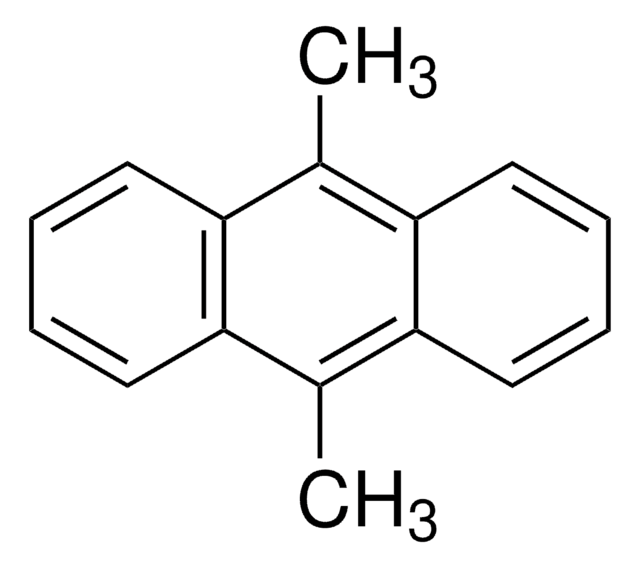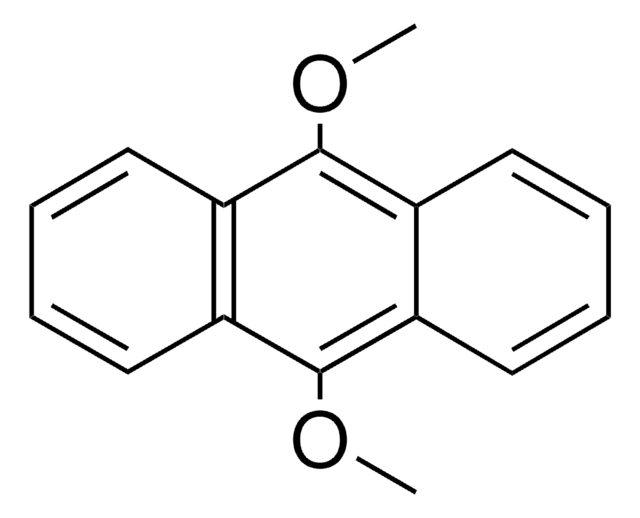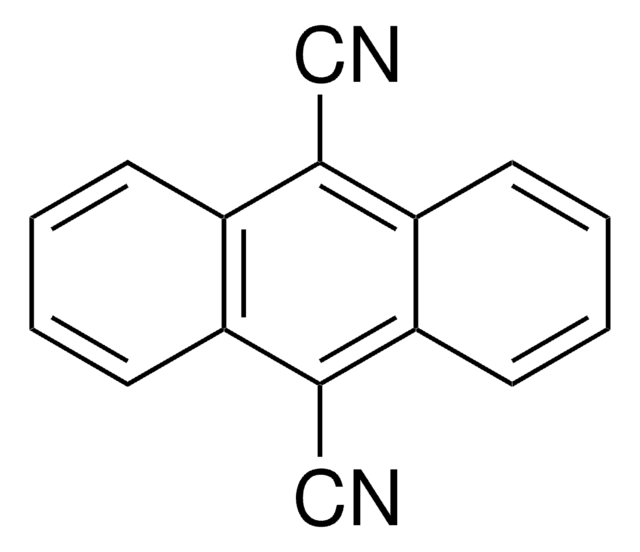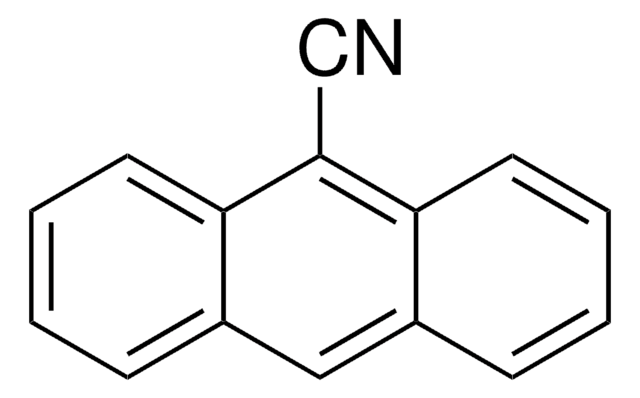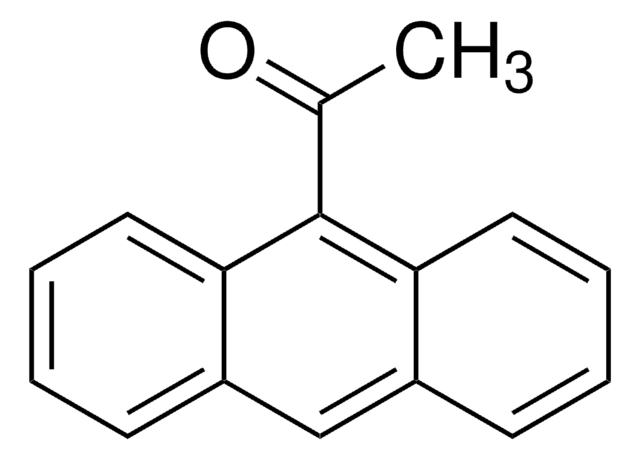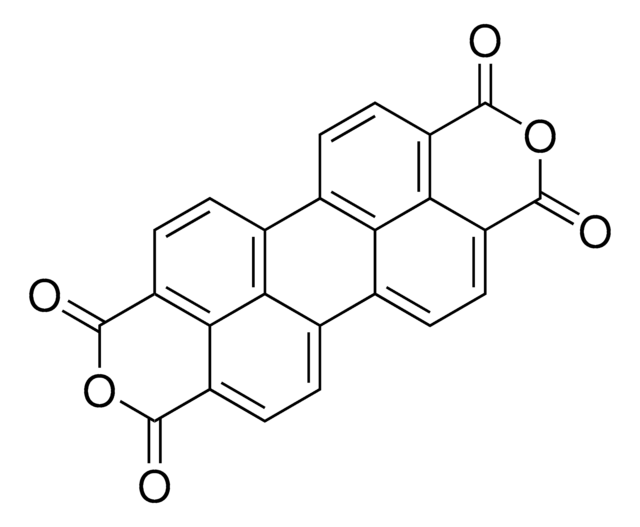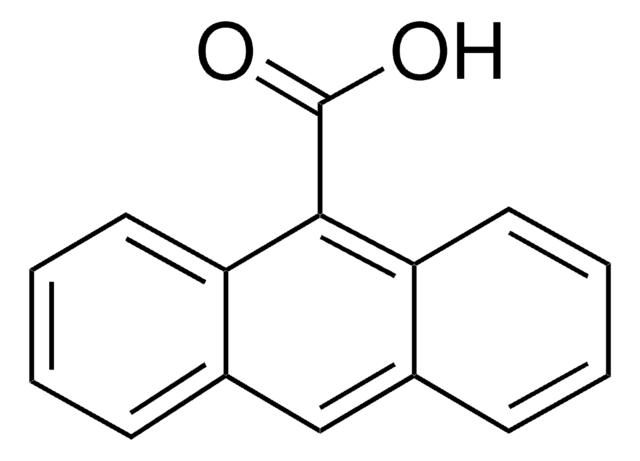About This Item
Recommended Products
Quality Level
Assay
97%
mp
117-119 °C (lit.)
SMILES string
CCc1ccc2c(OC)c3ccccc3c(OC)c2c1
InChI
1S/C18H18O2/c1-4-12-9-10-15-16(11-12)18(20-3)14-8-6-5-7-13(14)17(15)19-2/h5-11H,4H2,1-3H3
InChI key
SURWYRGVICLUBJ-UHFFFAOYSA-N
Looking for similar products? Visit Product Comparison Guide
Related Categories
General description
Application
Signal Word
Danger
Hazard Statements
Precautionary Statements
Hazard Classifications
Aquatic Acute 1 - Aquatic Chronic 1 - Carc. 1B
Storage Class Code
6.1C - Combustible acute toxic Cat.3 / toxic compounds or compounds which causing chronic effects
WGK
WGK 3
Flash Point(F)
Not applicable
Flash Point(C)
Not applicable
Personal Protective Equipment
Choose from one of the most recent versions:
Certificates of Analysis (COA)
Don't see the Right Version?
If you require a particular version, you can look up a specific certificate by the Lot or Batch number.
Already Own This Product?
Find documentation for the products that you have recently purchased in the Document Library.
Customers Also Viewed
Our team of scientists has experience in all areas of research including Life Science, Material Science, Chemical Synthesis, Chromatography, Analytical and many others.
Contact Technical Service

